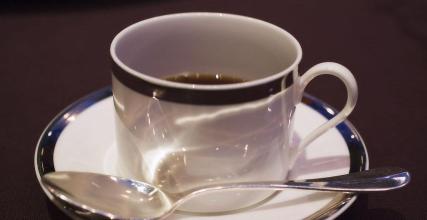Introduction to the characteristics of coffee flavor and taste of La Tisa Manor in Guatemala with a unique sweet flavor
Guatemala consists of the Supreme Court, the Constitutional Court, the Procurator-General's Office, the National Public Prosecution Office and the Ministry of Internal Affairs. There shall be the Supreme Court, the Court of Appeal and the Primary Court. The Supreme Court has 13 justices for a term of five years, which shall be elected by Parliament and may be re-elected; the President of the Supreme Court shall also serve as Chairman of the National Judicial Council, elected by a majority of 2 judges by 3 votes for a term of one year and shall not be re-elected. Gabriel Antonio Medrano Valenzuela, the current president of the Supreme Court, was elected president of Guatemala, Otto Perez Molina, in October 2012. Born in Guatemala City on December 1, 1950, entered in 1966
Otto Perez Molina
Otto Perez Molina
He studied at the Polytechnic Institute of Guatemala and then at the American School of the United States Army and the Inter-American Defense Institute. He was mainly responsible for military intelligence when he was in service. In 1982, he supported the then Defense Minister Oscar Mejia in launching a military coup that overthrew the government of Efrain Rios Mont. From 1993 to 1995, he served as Chief of staff of the Presidential Palace. In 1996, a peace agreement was signed on behalf of the military, ending a 36-year civil war. From 1998 to 2000, he served as a representative of the Defense Committee in Central America. He retired in January 2000, established the Patriotic Party in December 2001 and was elected a member of the National Assembly in 2004. He lost the presidential election in 2007. Road, CA1 connects Mexico, El Salvador and Guatemala City, CA9 connects Guatemala's two major commercial ports, CA2 serves as the connecting road for the Pacific coast and CA13 serves as the connecting road for Belize. Roads are mainly cars and buses, the main stronghold of the bus is Guatemala City to Guatemala to engage in business activities, must carry business cards printed with Spanish characters, contact with unfamiliar local business people, can take the initiative to deliver their own business cards to each other, the other party forgot to return the business card, should take the initiative to ask him, otherwise it will be difficult to contact him afterwards. The efficiency of local business is improving, the speed of negotiation is getting faster, when you encounter procrastination, do not complain about people, do not urge each other to speed up, it is important to be patient, and pay attention to establish a good relationship with them Guatemalans have a weak sense of time. Not only do they think that 13th and Friday
The Pyramid of Tikalmaya in the Tropical Rain Forest
The Pyramid of Tikalmaya in the Tropical Rain Forest
It's unlucky, and I don't like the number 14. Note that it is best not to talk about business in a local person's home or in front of his family. Get used to shaking hands when meeting. Good friends hug each other and pat each other on the shoulder. When women meet, if they are friends, give each other a gentle hug and kiss each other on the cheek. When guests are invited as guests, they can give the host a bouquet of flowers or candy as a gift.
The coffee produced in the highland is mellow and has a good sour taste, which is well received and is the best material for mixed coffee.
Coffee varieties:
Arabica species (Arabica):
It accounts for 85% of total coffee production, including Brazil, Colombia, Guatemala, Ethiopia and so on. The beans are turquoise, thin and small, with special aroma and sweet acid, which is good to drink with other coffee. Excellent quality, more suitable for public taste.
Robada species (Robusta):
Roughly planted in Java, Indonesia, drought-resistant and insect-resistant; bitter taste, but bitter with fragrance, especially after cooling with a unique sweet taste, suitable for the preparation of cold coffee, mellow and extremely bitter.
Liberia plus species (Leberica):
The quantity of this variety is very small, most of it is used to synthesize coffee and make coffee essence, it is difficult to see in the market, the quality is not good, and the coffee beans in each producing area have their own characteristics, and they have won a lot of praise for Guatemala in the international community, especially Antigua, how perfectly coordinated its sour, sweet and mellow texture is. Add a hint of smoke and emphasize its mystery, and after tasting it, you will have a reason not to look for substitutes everywhere.
Guatemalan coffee beans are mostly cultivated in high-altitude volcanic soils belonging to the most advanced Arabica varieties. Due to the long ripening period, the beans are medium and dense (Guatemalan coffee beans are graded not on the basis of particle size, but on the basis of shortcomings), and the bean color is dark turquoise. The unique sour taste of fragrance, mellow, sweetness and freshness is characterized by the aroma and taste of coffee beans hidden in its sour taste. Therefore, coffee beans with this characteristic can be called first-class coffee beans. The name of the product is suitable for baking degree and taste characteristics. There are few places in the world, such as a variety of high-quality coffee beans produced in Guatemala. The excellent quality of Guatemalan coffee beans is due to the unique conditions of their producing areas, including different climate change in each region, rich soil formed by volcanoes, abundant natural water resources, high-altitude mountains and shady and moist forests.
Guatemala has seven main coffee producing areas: Antigua,Coban,Atitlan,Huehuetenango,Fraijanes,Oriente and San Marcos

Important Notice :
前街咖啡 FrontStreet Coffee has moved to new addredd:
FrontStreet Coffee Address: 315,Donghua East Road,GuangZhou
Tel:020 38364473
- Prev

Rich, fragrant and bitter Indonesian coffee Fuyin Manor flavor and taste characteristics of boutique coffee beans
The capital Jakarta, located on the northwest coast of Java, covers an area of 740.28km and has a population of 10.187 million. It is a national political, economic and cultural center and a sea, land and air transportation hub, as well as a shipping center between southern Asia and Oceania. More than 500 years ago, Jakarta became a famous seaport for exporting pepper and spices. At that time, it was called Sunda Graba, which means coconut. Renamed Chajakarta in 1527
- Next

Fragrant, full-bodied Kenyan Coffee Berman Manor Flavor characteristics of Fine Coffee
The coastal areas are plains, and most of the rest are plateaus with an average elevation of 1500 meters. The eastern branch of the East African Rift Valley cuts longitudinally from the north to the south of the plateau, dividing the highland into east and west. The bottom of the Great Rift Valley is 450 miles below the plateau and 100 kilometers wide, with lakes of varying depths and many volcanoes standing. The north is desert and semi-desert, accounting for about 56% of the country's total area. Medium
Related
- Does Rose Summer choose Blue, Green or Red? Detailed explanation of Rose Summer Coffee plots and Classification in Panamanian Jade Manor
- What is the difference between the origin, producing area, processing plant, cooperative and manor of coffee beans?
- How fine does the espresso powder fit? how to grind the espresso?
- Sca coffee roasting degree color card coffee roasting degree 8 roasting color values what do you mean?
- The practice of lattes: how to make lattes at home
- Introduction to Indonesian Fine Coffee beans-- Java Coffee producing area of Indonesian Arabica Coffee
- How much will the flavor of light and medium roasted rose summer be expressed? What baking level is rose summer suitable for?
- Introduction to the characteristics of washing, sun-drying or wet-planing coffee commonly used in Mantenin, Indonesia
- Price characteristics of Arabica Coffee Bean Starbucks introduction to Manning Coffee Bean Taste producing area Variety Manor
- What is the authentic Yega flavor? What are the flavor characteristics of the really excellent Yejasuffi coffee beans?

